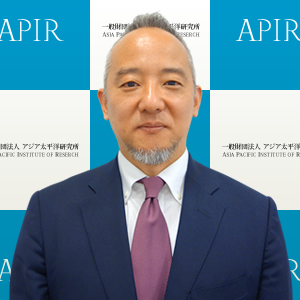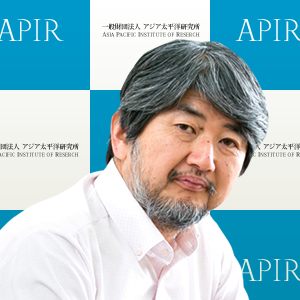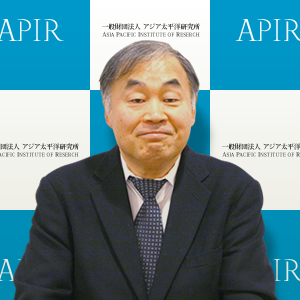APIR conducts research projects along the following 3 axes
Asia Pacific
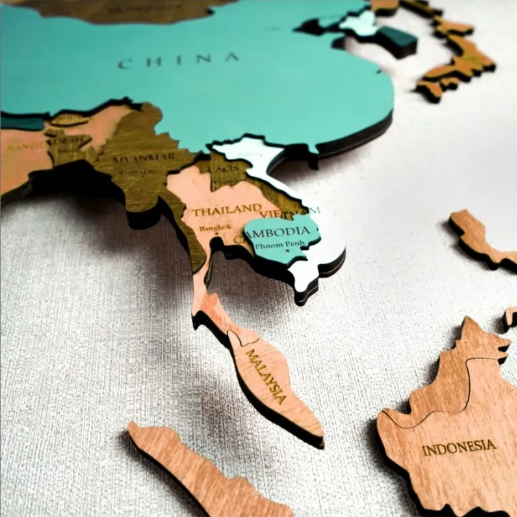
Research Projects
2021-07-27
- 2021FiscalYear » Asia Pacific
ABSTRACT
Research leader:
Fukunari KIMURA, Professor, Keio University & Chief Economist, Economic Research Institute for ASEAN and East Asia (ERIA)
Research outline:
Our goal is to provide a platform for discussion on the future of the free trade system in light of the ever-changing international environment caused by circumstances such as the COVID-19 pandemic. As the U.S.-China trade war, progress in the digital economy, and other aspects that have a strong impact on the overseas business development of multinational corporations are evolving at a rapid pace, our symposium also takes into account the latest information relevant for business activities.
Research Leader
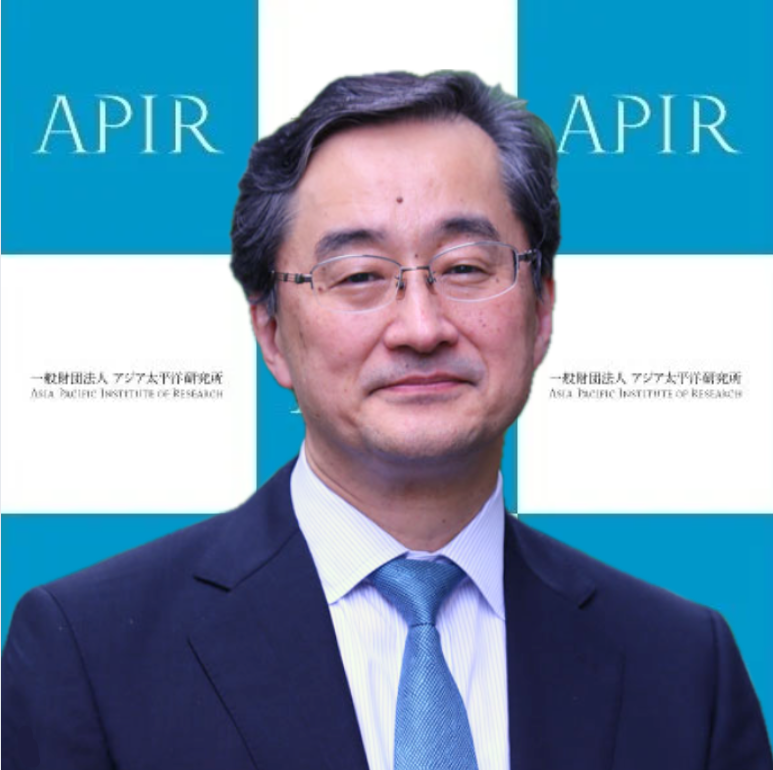
Senior Research Fellow, APIR / Professor Emeritus and Senior Professor, Keio University / President, Institute of Developing Economies, Japan External Trade Organization (IDE-JETRO) / Senior Research Fellow, Economic Research Institute for ASEAN and East Asia (ERIA)

Research Projects
2021-07-27
- 2021FiscalYear » Asia Pacific
ABSTRACT
Research leader:
Kenta GOTO, Professor, Faculty of Economics, Kansai University
Research outline:
SDGs achievement and the development of sustainable supply chains are of critical importance when devising business strategies in Asia. This research aims to investigate “sustainable business creation” while understanding the “goal trade-offs” in relation to SDGs. Moreover, we aim to raise awareness in order to accelerate SDGs implementation throughout the supply chains of companies in the Kansai region.

Research Projects
2021-07-27
- 2021FiscalYear » Asia Pacific
ABSTRACT
Research leader:
Takashi MORIYA, Professor, College of Business Administration, Ritsumeikan University
Research outline:
This research focuses on Asian human resources of different nationalities (India, Vietnam, Singapore, etc.). Following the example of previous initiatives implemented overseas and in Japan, we will conduct a survey which will allow us to make recommendations for Japanese companies on how to improve their capacity to attract and cooperate with Asian talent.
Research Leader

Professor, College of Business Administration, Ritsumeikan University
Japan and Kansai economy

Research Projects
2021-07-27
- 2021FiscalYear » Japan and Kansai economy
ABSTRACT
Research leader:
Yoshihisa INADA, Director of Research & Director of Center for Quantitative Economic Analysis, Asia Pacific Institute of Research (APIR)
Research outline:
The COVID-19 pandemic proved to be a turning point for the inbound tourism industry. As an alternative to mass tourism, we need to develop a strategy that focuses on high added value in order to maximize tourists’ expenditure per capita. In order to prepare for the post-pandemic era, we analyze the current situation of inbound tourism in Kansai and identify its main challenges. In addition, we aim to create a “brand power” index for tourist destinations which will contribute directly to stimulating inbound tourism demand.
Research Leader
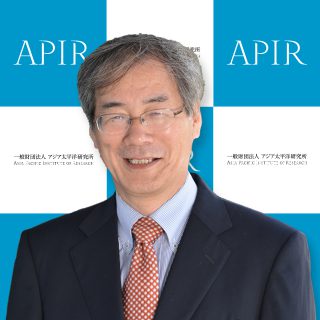
Director of Research & Director of Center for Quantitative Economic Analysis(CQEA), Asia Pacific Institute of Research and Professor emeritus, Konan University

Research Projects
2021-07-27
- 2021FiscalYear » Japan and Kansai economy
ABSTRACT
Research leader:
Shinji SHIMOJO, Professor & Director of the Cybermedia Center, Osaka University
Research outline:
The COVID-19 pandemic exposed once again Japan’s slow digital transformation (DX), but it also created an opportunity to push for more digitalization in both the public and private sectors. This research identifies the challenges posed by the comprehensive digital transformation of cities, as well as their solutions. Our goal is to propose a “regulatory framework and its implementation procedure” that will ensure a more effective digital transformation in Kansai and Osaka.
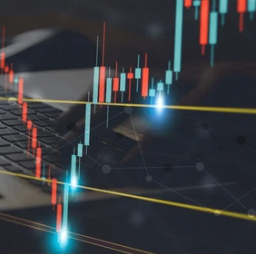
Research Projects
2021-07-27
- 2021FiscalYear » Japan and Kansai economy
ABSTRACT
Research leader:
Nobuyoshi YAMORI, Professor, Research Institute for Economics and Business Administration, Kobe University
Research outline:
Small and medium-sized businesses, which rely on the regional financial system, were particularly affected by the COVID-19 pandemic. Under these circumstances, regional financial institutions need to improve their ability to evaluate a business’s potential for growth accurately. The purpose of this research is to identify, analyze, and disseminate the best practices of regional financial institutions, as well as to point out issues and necessary actions to promote a finance system complying with ESG criteria.
Research Leader
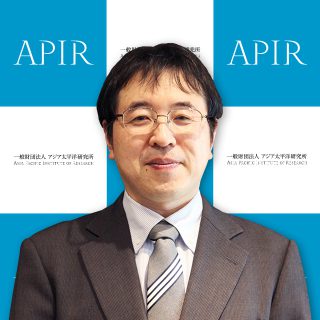
Professor, Institute of Economics and Business Administration, Kobe University and Director, Center for the Promotion of Regional Co-Creation Research, Kobe University
Economic forecast and analysis

Research Projects
2021-07-27
- 2021FiscalYear » Economic forecast and analysis
ABSTRACT
Research leader:
Yoichi MATSUBAYASHI, Professor, Faculty of Economics, Kobe University
Research outline:
Our goal is to develop a forecasting system which enables us to understand the macroeconomic trends in real time by using the “text data” provided by fast media reports. We hope that this system will be used by research institutes and companies for economic forecast and analysis, as well as business planning.
Research Leader
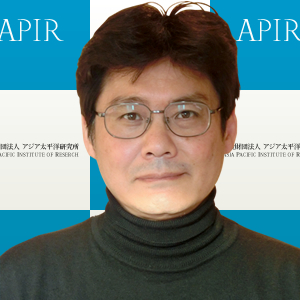
Professor, Graduate School of Economics and Faculty of Economics, Kobe University
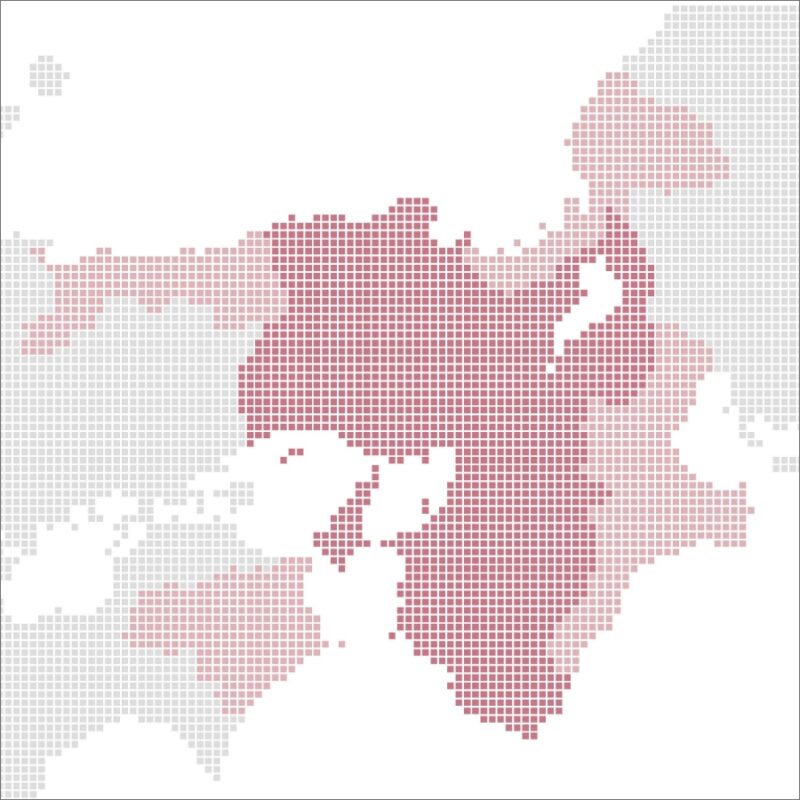
Research Projects
2021-07-27
- 2021FiscalYear » Economic forecast and analysis
ABSTRACT
Research leader:
Kikuo TAKABAYASHI, Professor, School of Economics, Kwansei Gakuin University
Research outline:
The inter-regional input-output table allows us to analyze the economic ripple effect caused by inter-regional trade structures and regional interdependence. By focusing on the Greater Kansai area* and by integrating the results of a preliminary survey conducted among residents and visitors to the Kansai region, we obtained a table which offers a more realistic view of the situation**. This fiscal year, we are planning to analyze the ripple effect of the tourism industry, which was hit hard by the COVID-19 pandemic.
*Greater Kansai area includes the following eight prefectures: Fukui, Mie, Shiga, Kyoto, Osaka, Hyogo, Nara, Wakayama, Tottori, and Tokushima.
**The input-output table targets every year whose number ends in “0” or “5”, leading to a time lag of approximately five years between the target year and the publication year. As of March 2021, we have almost finished collecting the 2015 data for every Kansai prefecture, and based on it we will create the “2015 Kansai inter-regional input-output table”.
